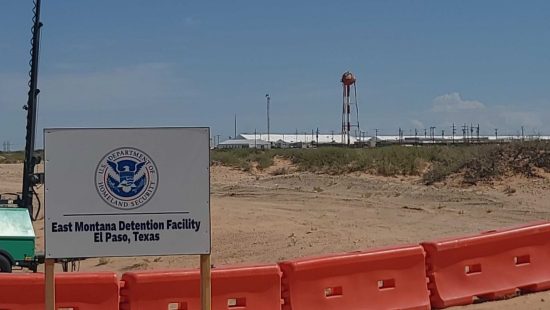U.S. Rep. Monica De La Cruz, R-Texas, has proposed a bill to streamline farmworker visas for migrants that harkens back to the Bracero Program of the 1940s.
If approved by Congress and the president, De La Cruz says the Bracero Program 2.0 Act would help stabilize the agricultural workforce on the border by legally bringing in migrant workers and making it easier for farms to employ these workers with H-2A visas.
“For decades, the Bracero Program created new opportunities for millions and provided critical support for Texas agriculture. I am leading efforts to revive the Bracero spirit by reforming H-2A visas,” De La Cruz said in a statement.
She’s calling it a new iteration of the old Bracero Program, which started in 1942 and allowed millions of Mexican men to work legally in the United States on short-term labor contracts to fill jobs vacant due to labor shortages during World War II.
“This will provide solutions desperately needed for hard-working immigrants. With workforce shortages challenging our communities, the Bracero Program 2.0 will bring stability and certainty for South Texas,” said De La Cruz, who is on the House Agriculture Committee and lives in McAllen.
However, not everyone agrees with her proposal.
“This proposal (by U.S. Rep. Monica De la Cruz, R-Texas) is not a new Bracero Program,” Carlos Marentes said. “It’s in reality some changes to the current H-2A program [….] and we are very concerned because they are getting rid of the provisions that currently exist to protect the H-2A workers, who represent almost 20 percent of the farm labor force in the United States.”
Carlos Marentes, a farm labor leader and Bracero Program expert, is especially worried about the bill’s proposed wage rate, fearing it will drastically reduce farmworkers’ pay.
As of 2023, H-2A workers’ wages ranged from $14.83/hour in Arkansas to $19.97/hour in California, according to the Federal Register.
De la Cruz’s bill proposes to standardize the pay to $2 above each state’s minimum wage.
In Texas, for example, the minimum wage is $7.25/hour, so the new wage under her proposal would be $9.25/hour—a significant cut from the current $15.79/hour H-2A wage under federal rules.
“The idea they get paid a higher wage, so they don’t affect the local labor force. If they did, everybody’s wages would go down,” Marentes said.
Some members of Congress have acknowledged that wage reform is needed to make H-2A labor more affordable for small and mid-sized farms.
The bill was introduced in the House of Representatives on July 14 and has since been referred to the House Committee on the Judiciary.








